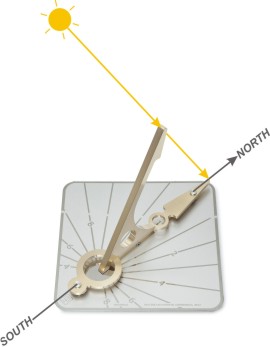Time is not completely accurate as there is no absolute time, and all clocks will inevitably lose some time. We live in a universe that is fundamentally quantum mechanical and probabilistic, which means that there is always a degree of uncertainty in measuring time accurately.
Atomic clocks, which measure time based on the resonant frequency of atoms, are considered the most accurate form of timekeeping as they are less affected by external factors and have high oscillation frequencies. However, even atomic clocks have variations in their accuracy and are constantly improving.
The accuracy of a clock depends on its reference point, and atomic clocks are measured against other atomic clocks to ensure their precision.
Exploring The Concept Of Time
When it comes to understanding the nature of time, it’s a concept that has fascinated humanity for centuries. From philosophical discussions to scientific explorations, the concept of time remains a captivating enigma. In this blog post, we dive into the depths of time, exploring its accuracy and the evolution of time measurement.
The Importance Of Accuracy In Timekeeping
Accurate timekeeping is crucial in various aspects of our lives. From coordinating global events to ensuring precise financial transactions, time accuracy is the bedrock of modern civilization. The synchronization of time across different systems and devices plays a vital role in maintaining smooth operations and preventing disruptions.
The Evolution Of Time Measurement
The history of time measurement has witnessed remarkable advancements, evolving from sundials to the sophisticated atomic clocks of the present day. The journey of timekeeping is a testament to human ingenuity and our quest for precision. From ancient civilizations to the cutting-edge technology of today, the evolution of time measurement is a captivating narrative of human innovation.
The Role Of Atomic Clocks
Atomic clocks play a crucial role in modern timekeeping, offering unparalleled accuracy due to their unique technology.
Understanding Atomic Clock Technology
Atomic clocks measure time by tracking the resonant frequency of atoms, providing highly precise and stable timekeeping.
Impact Of Quantum Physics On Timekeeping
Quantum physics has revolutionized timekeeping by enabling the development of atomic clocks that redefine the accuracy of measuring time.
Challenges In Achieving Accuracy
Achieving accuracy in measuring time poses several challenges. As there is no absolute time, all clocks will inevitably lose some time. The most accurate clocks, like atomic clocks, use atomic vibrations to track time, but even they are subject to variations and constant improvement.
Inherent Limitations Of Timekeeping
Timekeeping systems, despite their remarkable precision, are not infallible. There are inherent limitations that can affect their accuracy. One of the primary challenges is the concept of absolute time. As there is no absolute time, there can be no absolutely accurate clock. We live in a universe governed by quantum mechanics, where time is fundamentally probabilistic. Therefore, all clocks will inevitably lose some time at some point. The question is not whether a clock will lose time, but rather when it will occur. Even the most advanced atomic clocks, which are currently the most accurate form of timekeeping, are not immune to these limitations.Environmental Factors And Timekeeping Accuracy
Another challenge in achieving accuracy in timekeeping is the influence of environmental factors. Traditional clocks, such as mechanical and quartz-based ones, are susceptible to external conditions such as temperature, humidity, and electromagnetic interference. These factors can affect the stability and precision of the clock’s oscillators, leading to potential inaccuracies in timekeeping. However, atomic clocks have revolutionized timekeeping by utilizing the vibrations of atoms, which are relatively stable and unaffected by most environmental conditions. The oscillation frequency of atomic clocks is considerably higher than other types of clocks, making them more resistant to external influences. This ensures a higher level of accuracy in time measurement. In conclusion, while timekeeping has come a long way in terms of accuracy, there are still challenges to achieving complete precision. The inherent limitations of timekeeping and the impact of environmental factors pose continuous challenges. However, advancements in atomic clocks have significantly improved the accuracy of timekeeping systems. It is essential to acknowledge these challenges to maintain reliable and accurate time measurements in various fields, such as finance, GPS navigation, and scientific research.
Credit: www.macmillanhunter.co.uk
Comparing Different Timekeeping Systems
International Atomic Time (TAI) serves as the foundation for precise timekeeping around the world. TAI is based on a system of atomic clocks that measures time using the vibrations of atoms, making it incredibly accurate and reliable.
When it comes to digital clocks and mobile devices, their accuracy depends on the internal clocks they use, which are often synchronized with international time standards. However, factors like network latency and hardware limitations can affect the overall precision of these devices.
Applications Of Precise Timekeeping
Precision timekeeping plays a crucial role in various sectors like finance and GPS due to the need for accurate time stamps. Atomic clocks, utilizing atomic vibrations, offer the most precise time measurements, unaffected by environmental factors, making them essential for maintaining accurate time standards.
Financial Sector
In the financial sector, accurate and precise timekeeping is of paramount importance. Financial transactions, such as stock trades and banking operations, require synchronization to the millisecond. With the emergence of high-frequency trading, where trades are executed in mere microseconds, timing discrepancies could lead to significant financial losses. Precise time stamps are crucial for auditing, fraud detection, and compliance purposes in this fast-paced industry.Gps And Navigation Systems
GPS and navigation systems heavily rely on precise timekeeping for accurate location tracking. These systems use signals from satellites to determine location, speed, and direction. The accuracy of these calculations depends on the precise synchronization of time between the satellites and the receiving devices. Even a minor timing error can lead to significant deviations in location calculations. Precise timekeeping is thus crucial for navigation accuracy in sectors such as transportation, aviation, and maritime. In conclusion, precise timekeeping has significant applications in various industries. It plays a critical role in ensuring financial transactions are executed accurately and helps maintain the integrity of the financial sector. Additionally, GPS and navigation systems heavily rely on precise time synchronization to provide accurate positioning information. By understanding the importance of precise timekeeping in these sectors, we can appreciate the impact of accurate time on our daily lives.
Credit: m.youtube.com
The Future Of Timekeeping
Timekeeping has undergone remarkable advancements, leading to unparalleled precision and accuracy. The future of timekeeping is profoundly influenced by groundbreaking innovations in atomic clocks and the redefinition of the second. Exploring these developments sheds light on the extraordinary potential for time accuracy in the years to come.
Advancements In Atomic Clocks
Atomic clocks represent a monumental leap in timekeeping technology. By harnessing the intrinsic properties of atoms, these devices offer unparalleled precision. By measuring the resonant frequency of atoms, atomic clocks provide an exceptionally stable timekeeping standard. The advancements in atomic clocks have revolutionized timekeeping, ensuring unprecedented accuracy across various applications.
Redefining The Definition Of A Second
The conventional definition of a second, based on the Earth’s rotation and the astronomical concept of a day, is evolving with the emergence of atomic clocks. The redefinition of a second, now founded on the vibrational properties of atoms, symbolizes a paradigm shift in timekeeping. This redefinition aligns with the pursuit of absolute accuracy, setting the stage for a new era of timekeeping precision.
Impact On Everyday Life
Time is a fundamental aspect of daily life, influencing everything from meeting deadlines to ensuring synchronized schedules. The accuracy of time plays a crucial role in a myriad of aspects, from modern technology to precision timekeeping. Let’s delve into the significance of accurate time in our everyday lives.
Accurate Time In Modern Technology
In the realm of modern technology, precise time is imperative for the seamless functioning of various systems and devices. From global communication networks to GPS satellites, accurate timekeeping is the cornerstone of their operational efficacy. The synchronization of data transmission and the authentication of digital signatures all rely on precise timekeeping.
Relevance Of Precise Timekeeping
Beyond modern technology, precise timekeeping serves as the bedrock for numerous sectors, including finance, transportation, and scientific research. Stock markets, for instance, rely heavily on precisely timestamped transactions, highlighting the critical role of accurate time in ensuring financial stability. Furthermore, in the field of scientific research, experiments and observations often necessitate synchronized timekeeping to accurately record and analyze data.

Credit: www.reddit.com
Frequently Asked Questions On How Accurate Is Time?
Is Time Completely Accurate?
Time is not completely accurate as all clocks will “lose” some time eventually due to quantum mechanics and probability. Atomic clocks are the most accurate due to being based on atomic vibrations and insensitivity to environmental factors.
Is Our Time System Accurate?
Atomic clocks, which measure time using atomic vibrations, are the most accurate timekeeping devices. As they are based on atomic energy levels, they are not influenced by environmental factors and have a high frequency. However, no clock is entirely accurate due to quantum mechanics.
How Accurate Is The World Clock?
The world clock is highly accurate. It is based on atomic vibrations, which are unaffected by temperature or other factors. Atomic clocks are the most precise and reliable form of timekeeping in use today.
What Is The Most Accurate Form Of Time?
The most accurate form of time is atomic clocks, which rely on atomic vibrations for precision.
Conclusion
In a universe of quantum uncertainty, time’s accuracy is a relative concept. Atomic clocks provide precision but not perfection due to quantum mechanics. Understanding time as a dynamic, probabilistic force reveals the limitations of absolute accuracy. Embracing the nuances of timekeeping enhances our comprehension of this complex phenomenon.
